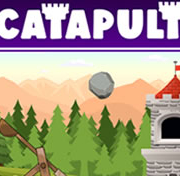Charles Darwin Facts, Science Game
Who was Charles Darwin? This game will help children learn key facts about the evolutionary biologist, Charles Darwin. As an English naturalist, geologist, and biologist, Darwin’s theory of natural selection made significant contributions to our understanding of the origins of species. Play this game to learn key facts about Charles Robert Darwin. I bet you did not know Robert was also his name.
Interesting Facts About Charles Darwin
Interested in the life of Charles Darwin? Learn about His childhood, boarding school and his life as a scientist. Get to know the most interesting facts about His life and work. Discover the most important events in Darwin's life. Learn about the scientific achievements of Darwin, such as the discoveries of fossils and the theory of evolution. Read about His family background and life, as well as His writings. You'll be glad you read these facts about Charles Darwin.
Charles Darwin's childhood
As a child, Charles Darwin loved collecting objects. Born in rural England, he spent his spare time studying birds and other animals and reading books. A naturalist at heart, Darwin never formally studied anything other than the natural world. Although he despaired of memorizing Latin and studying poetry, his interest in nature never waned. By the time he was in high school, he had already become a world-famous naturalist and inventor of the theory of evolution by natural selection.
His boarding school
At the age of nine, Charles Darwin enrolled at a boarding school run by Dr. Butler in Shrewsbury, England. He attended the school for seven years, finishing at age sixteen. Though he was a mile away from his home, he could return to his family at any time. The boarding school taught him classical subjects such as Greek and Latin. Although his studies were not outstanding, Darwin remained happy there, even though he loathed the subjects.
His career as a scientist
After graduating from Edinburgh University with a B.A. in philosophy, Charles Darwin immediately jumped at the chance to attend Christ's College in Cambridge, England, and study to become a minister. There, he took a botany course with Professor John Stevens Henslow. He began collecting beetles and other insects, and read widely. He received his bachelor's degree in 1831.
His writings
Many readers of Charles Darwin's writings may be surprised to learn that he had a personal faith in God. While his autobiography was never published, he was fascinated by natural history and its intricate details. Despite his father's wishes for him to be a minister, he decided to pursue natural history instead. He enrolled at the University of Edinburgh at age sixteen, where he met plant scientist John Henslow.
His abolitionist views
Abolitionist views are often characterized as a'moral' attitude that abolitionists hold. Darwin, however, was not a militant abolitionist. He spent years abroad in Africa and India witnessing the suffering of slaves, and his wife Emma Darwin was an abolitionist, too. Darwin also deplored the mistreatment of animals, and he supported the view that all humankind is one and should be treated as equal.
His adventures on the HMS Beagle
During his voyage on the HMS Beagle, naturalist Charles Darwin collected specimens for his new theory of evolution by natural selection. His findings challenged traditional ideas of creationism. Previously, Darwin had planned to become a country clergyman. But his newfound passion for nature inspired him to change his plans. His theory was eventually published and his theories were widely adopted. The HMS Beagle was the first scientific vessel to circumnavigate the globe and it sailed from the United Kingdom to Australia and South America.









